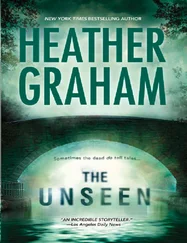Now she decided that it was reasonable that she turn and walk home, but as she reached the bottom of the steps, one of the dark blue doors opened behind her and a low voice issued forth.
“Where do you think you’re going?” said the voice.
Ada turned around. The man in the doorway was small and stern. He had gray hair parted sharply to the side of his head, and brown pants, and a wide, short, brown tie.
“Nowhere,” she said. She was surprised into saying it.
“Were you leaving?” the man asked.
“I was trying to get in,” said Ada. “The door was locked.”
“And knocking is something you’re not familiar with?” he asked her. She had never been spoken to in this way, so harshly.
“I’m new,” said Ada, by way of explanation. She began to dig in the pockets of her skirt for her schedule so she could show him, but the man was already coming toward her. Shockingly, he took her by her elbow. She had not ever been handled in this way. He brought her forward, up the steps, pushing her ahead of him as if she might try to escape. And once she was inside he pulled the door closed behind her with a crack.
It was explained to her by the secretary, when she reached the office, that although her first class began at 8:00 a.m., homeroom was at 7:40 sharp. The front doors were closed and locked at 7:38 a.m. exactly, and after that students were required to ring a bell to be let in, and their lateness was noted on their record. Ada was certain that this had not been explained to her on her first and only visit to the school, but it felt futile to protest — they were so certain of her guilt that it seemed better, more effective, to hang her head and nod.
The secretary, Mrs. Duggan, donned her half-moon reading glasses to take a look at the schedule that she still held in both of her hands. She glanced up at the clock on the wall.
“8:01,” she said. “You should be in Sister Margaret’s class right now.” And she walked Ada out of the office, down a short hallway, around a corner.
“If you’d gone to your homeroom you would have gotten your locker assignment. But we should get you to class now. You’ll get it tomorrow,” said Mrs. Duggan.
Although it hadn’t occurred to her yesterday, Ada now noticed the smell of the place — the famous schoolhouse smell she had read about in many of her favorite books. Chalk and soap and dust and metal. She took it in. Overhead, fluorescent lights flickered from time to time distractingly.
She reached Sister Margaret’s classroom, and Mrs. Duggan turned to her.
“I’ll introduce you to your student ambassador first,” she said. “You were supposed to meet her this morning.”
She opened the door and popped her head inside. “Sister,” she said, “could I borrow Melanie McCarthy for a moment?”
After a pause, a girl emerged from the classroom and into the hallway. She looked at Ada unblinkingly. She was beautiful: the sort of girl that Ada suddenly and irreversibly realized she wanted to look like. It had never really occurred to her to want to look any particular way before. Melanie had very fair blond hair that fell back and away from her face, held there by what seemed like a permanent breeze. She had smooth unblemished skin — Ada had noticed that lately her own had been less cooperative — that was tan still from the summer. Ada imagined she spent a great deal of time lying on a beach someplace, or performing some wholesome athletic activity like field hockey. Her skirt fit her perfectly and fell to the tops of her kneecaps, which themselves were perfect. Her white socks were pulled to the top of her shins and folded over precisely. Ada was wearing ankle socks, scrunched down by her shoes, because she had nothing else to wear.
“Ada, this is Melanie,” said Mrs. Duggan. “She’ll be your ambassador here at Queen of Angels.” And Ada could tell by the way she looked at Melanie that here was a girl she approved of, a tidy girl with brushed hair and a family who donated the correct amount each year. The name of the school seemed, in that moment, to apply to Melanie herself. Ada extended her hand ever so slightly, the way she would have upon being introduced to a graduate student, and then retracted it. A handshake was not correct.
“She’s in Group B with you, so she has the same schedule you do. If you have any questions,” said Mrs. Duggan, “she’s the one to ask.”
Melanie said nothing. She smiled, briefly, and looked at Ada inquisitively. She was Ada’s height exactly and their eyes met quickly before Melanie turned them away, back to Mrs. Duggan, who was thanking her for her kindness. “And I’m sure Ada will thank you, too,” she added. “Won’t you, dear?”
She nodded.
Mrs. Duggan rapped on the glass once with her knuckles and then opened the door. Sister Margaret, inside, was poised with her hand at the chalkboard, about to finalize some equation. Mrs. Duggan put a hand on Ada’s shoulder and ushered her into the classroom. Melanie trailed behind, and then walked gracefully back to her desk and, sitting, tucked one leg behind the other.
“Sister Margaret,” said Mrs. Duggan. “Class. This is Ada Sibelius. She’s new here. Ada, why don’t you tell the class a little about yourself.” She and the hallway monitor had both pronounced her last name incorrectly — something like Si bellus — but Ada knew not to correct them. David would have. She had never been certain about how she’d acquired the few social skills that she possessed, which had always acted as a balance to David’s lack thereof. Genes, perhaps — the genes of the surrogate mother who gave birth to her. Or her interactions with the other members of the lab. Either way, Ada called upon them not to fail her in that moment — to produce the right response, the right introduction.
She looked out into the sea of maroon-and-navy-clad eighth-graders, boys and girls all returning her gaze impassively. She held her briefcase in her right hand and curled her first around its handle more tightly as she struggled to bring words — any words at all — to mind. She dug her nails into her palms. Anything she could imagine saying felt too far-fetched, too bizarre. I’ve never been in a school before , she could say. My name is Ada Sibelius and my favorite mathematician is Gauss .
Finally she settled on Hi . “Hi,” she said. “I’m Ada. I’m thirteen. I’m from Dorchester.”
Which was, of course, silly. They all were.
The math class was incredibly basic. Ada had had a suspicion it would be, but it was so simple that it was actually interesting to watch, at least at first: Sister Margaret was spending time on the multiplication of fractions, teaching the class in a slow, methodical way, drawing X s from top to bottom and bottom to top. Ada knew to do this, intuitively, but it had never been mapped out for her in that way, mechanically. Everything she knew of math was somehow more fluid, more instinctual, than the diagrams that Sister Margaret was putting on the board. It felt like someone telling her how to speak, or by what method to put together an intelligible sentence. It felt like someone telling her how to access a memory. How to breathe.
And yet, all around her, students were completing exercises given to them by Sister Margaret, using the same cross-hatching technique she was demonstrating at the front of the room. She wrote a list of equations on the board and then roamed the room silently as students put their heads down to work at the task. Ada put her briefcase atop her desk and carefully turned the dials into place and sprang the latches with a louder pop than she’d recalled. Several students around her turned to look, and it was then that she noticed the backpacks that were tucked neatly into baskets beneath each student’s seat: red and green and blue canvas bags with straps, the sort David called satchels . Instantly, her face colored, and she lifted and lowered the lid of her briefcase as quickly as she could, retrieving from it the pad of Steiner Laboratory stationery and the pen her father had tucked into place that morning. Then she pushed the briefcase under her desk.
Читать дальше












